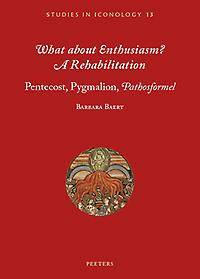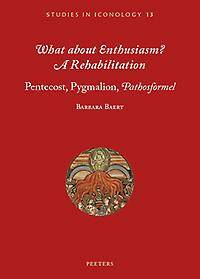
- Afhalen na 1 uur in een winkel met voorraad
- Gratis thuislevering in België vanaf € 30
- Ruim aanbod met 7 miljoen producten
- Afhalen na 1 uur in een winkel met voorraad
- Gratis thuislevering in België vanaf € 30
- Ruim aanbod met 7 miljoen producten
Zoeken
€ 42,00
+ 84 punten
Omschrijving
The word enthusiasm is derived from the Greek enthousiasmos and means being captivated by a god. Even today, we use 'enthusiasm' to describe a special energy that can suddenly overwhelm us: an emotional affect that holds the glow for the subject within oneself, and which radiates inspiration out to an audience. Yet, through the ages, the concept has not always carried with it the positive connotations it had in ancient Greece. Despite a few flickers on the cultural historical time line, enthusiasm has mostly been marginalised in modern Western philosophy: as an excessive urge or as a harmful exaggeration of emotions. In this essay, I work towards a rehabilitation of inspiration within intellectual thought. Is enthousiasmos the subject of any iconographic traditions? Is enthousiasmos also an aesthetic concept? And can enthousiasmos be part of an epistemology?
Specificaties
Betrokkenen
- Auteur(s):
- Uitgeverij:
Inhoud
- Aantal bladzijden:
- 149
- Taal:
- Engels
- Reeks:
- Reeksnummer:
- nr. 13
Eigenschappen
- Productcode (EAN):
- 9789042936737
- Verschijningsdatum:
- 5/03/2019
- Uitvoering:
- Paperback
- Formaat:
- Trade paperback (VS)
- Afmetingen:
- 170 mm x 239 mm
- Gewicht:
- 408 g

Alleen bij Standaard Boekhandel
+ 84 punten op je klantenkaart van Standaard Boekhandel
Beoordelingen
We publiceren alleen reviews die voldoen aan de voorwaarden voor reviews. Bekijk onze voorwaarden voor reviews.











